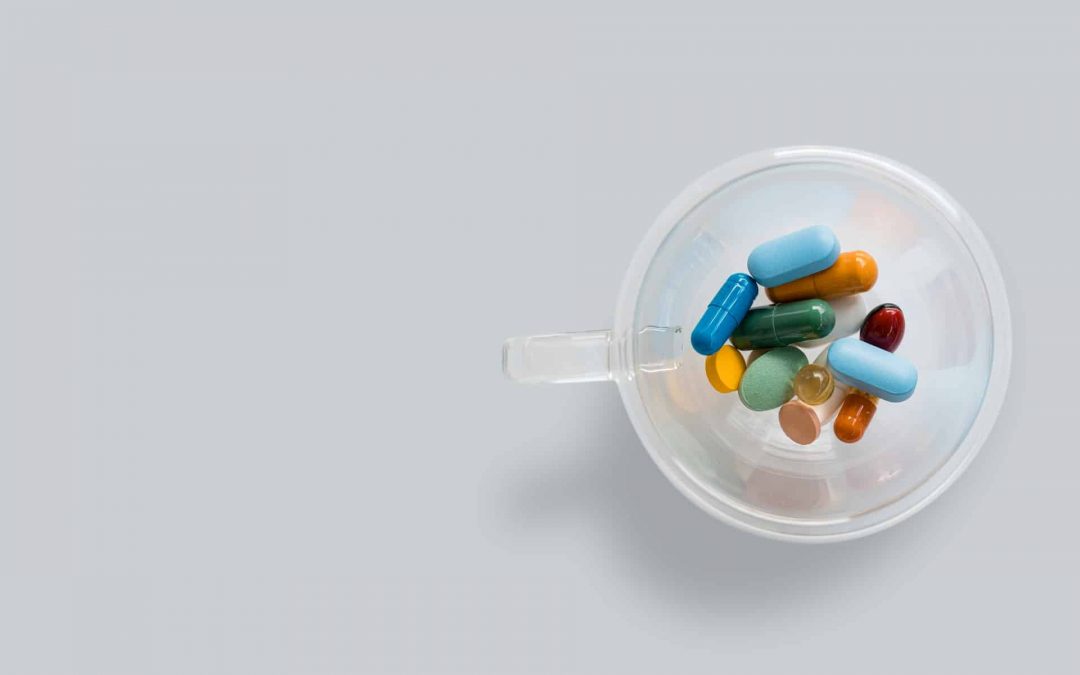You want to lose weight. You know you need to eat less and move more, but it’s hard to do when you are feeling hungry all the time.
That is because your body has become so used to overeating that now it thinks you are starving it.
To fix this problem, Apple cider vinegar is a great weight loss solution. Some research has shown that it has several health benefits, one of which is reduced blood sugar levels.
It can be used in a variety of different ways, which makes it an easy and convenient way to achieve the weight you’ve been wanting for so long now.
Here are some reasons why apple cider vinegar should be your go-to when you want to shed those extra pounds.
This article looks at the science behind apple cider vinegar and weight loss, as well as advice on how to use it in your diet.
Contents
What Is Apple Cider Vinegar?
Apple cider vinegar is made in a two-step process. First, apples are pressed to create apple cider. The second step is where the magic happens: bacteria and yeast ferment the mixture for about a month until it turns into vinegar with only trace amounts of sugar or carbs.
The time required to produce apple cider vinegar varies from one month for traditional method while some producers speed up the process to just a day.
Apple cider vinegar’s most important active component is acetic acid.
Acetic acid accounts for around 5-6% of apple cider vinegar. It also includes amounts of other acids, including malic acid.
8 Benefits to Expect from Apple Cider Vinegar Diet
As it has been said, acetic acid is the main active ingredient in apple cider vinegar which gives the most benefits.
1) Reduces blood sugar levels
Slow stomach emptying prevents carbohydrates from being completely broken down, allowing glucose to remain in the blood for longer. The acetic acid in vinegar delays gastric emptying by slowing the rate at which food is transferred into the small intestine.
In a rat study, researchers discovered that acetic acid boosted the liver and muscle’s capacity to absorb sugar from the circulation.
2) Lowers insulin levels
In a study, acetic acid (AcOH) in the form of vinegar lowers postprandial plasma insulin levels.
This observation is consistent with previous studies demonstrating that vinegar ingestion reduces postprandial hyperinsulinemia in healthy people and those with insulin resistance and type 2 diabetes.
Furthermore, study findings suggest that vinegar may improve insulin sensitivity by improving the efficiency of glucose metabolism in skeletal muscles, which might favor fat burning.
3) Improves metabolism
In a different study done on KK-A(y) mice, researchers fed them a standard diet or one containing 0.3 percent acetic acid for 8 weeks.
Acetic acid reduced fasting plasma glucose and HbA1c levels in mice fed it for 8 weeks when compared to control animals. Acetic acid also decreased the expression of genes involved in glycosylation and lipogenesis, which are controlled in part by 5′-AMP-activated protein kinase (AMPK) in the liver.
The final thought is that acetic acid consumption raises the enzyme AMPK, enhances fat burning, and decreases fat and the production of sugar in the liver.
4) Decreases fat storage
Acetic acid or acetate treatment prevented weight gain and increased the expression of genes that decreased belly fat storage and liver fat in obese, diabetic rats.
In the research, they found that AcOH protects Otsuka Long-Evans Tokushima Fatty (OLETF) rats from obesity when it is given to them daily under the fed condition. Furthermore, acetic acid helped to protect against lipid accumulation in the liver and abdominal fat in OLETF rats.
5) Burns fat
A study in mice fed a high-fat diet supplemented with acetic acid found that there was a significant increase in genes involved in fat burning, which resulted in less body fat accumulation.
A 2009 study of 175 people who consumed a beverage containing 0, 1, or 2 teaspoons of vinegar each day was the most well-known research on humans. Those who consumed vinegar had modest weight loss (2 to 4 pounds) and lower triglyceride levels after three months, according to this study.
6) Suppresses appetite
A study conducted on mice found that acetate may dampen centers in your brain that control hunger, resulting in reduced food intake.
Because carbs are absorbed more slowly, this is why they provide a feeling of fullness for longer. Furthermore, because vinegar provides the appetite center with a flavor-astringent-the brain believes it is being fed.
7) ACV Increases Fullness
Apple cider vinegar has been found to reduce the rate at which food leaves your stomach, in addition to suppressing appetite. which can reduce calorie intake.
In one small research of 11 individuals, those who ate a high-carb meal while taking vinegar had a 55% reduced blood sugar response an hour later.
8) Kills harmful bacteria and viruses
Vinegar destroys germs that can cause food poisoning, including E. coli. In one experiment, vinegar reduced the number of harmful bacteria by 90% and viruses by 95%.
How you should take apple cider vinegar?
Is it safe to take daily?
ACV is typically healthy to consume on a daily basis as a food ingredient. ACV is frequently used in salad dressings, marinades, and other condiments by manufacturers.
Doctors are aware that side effects can occur if someone drinks pure apple cider vinegar or uses it topically on the skin.
In general, ACV should be consumed or used in moderation.
Ways to include apple cider vinegar in your diet
Mix It with Juice
The easiest and most popular way to acquire your daily ACV intake is to combine one or two tablespoons of it with fresh juice in the morning. Orange, grapefruit, and cranberry juice are good choices, but avoid any juice cocktail or beverages containing sugar.
This juice would go well with the Apple-Lemon-Ginger Juice or Tangy Greens and Apple Juice recipes, but it would also blend in nicely with the Roots Juice. You may also add a sprinkle of sparkling water to any of the above.
Add It to Tea with Honey
Another easy method to consume ACV is to add it to your morning tea. Add one tablespoon of ACV to a cup of hot green or oolong tea, along with honey for effectiveness.
Make a Salad Dressing
ACV may be added to your daily diet in a number of ways, including replacing the red wine vinegar or balsamic vinegar in your salad dressing. Try adding a touch of honey and mustard to cover up the stronger vinegar flavor, such as this one. It’s great for salads (obviously), roasted veggies, grilled chicken, and grain bowls
Make a Marinade
Marinating your meat or vegetables in a somewhat acidic mix (like you would from vinegar) will aid in the tenderization of your dish and retain moisture. Use ACV and herbs to make this Roast Chicken with Vegetables, which marinates it.
Be Brave and Take a Shot
Combine one tablespoon ACV with two teaspoons water, plug your nose, swallow it back, and finish with a chaser.
To be honest, this is my favorite method to consume ACV-for a few minutes your stomach feels like it’s on fire, but it’s the simplest way. Never take ACV straight without water, though.
If you don’t dilute it, it could damage your tooth enamel and cause stomach pains. You may also try to make it taste like dessert to make it more appealing.
Bottom Line
In the end, taking a moderate amount of apple cider vinegar appears to aid in weight loss and offer a variety of other health advantages.
Other types of vinegar might provide comparable health benefits, but those with a smaller acetic acid content may have less powerful effects.
To obtain whole weight reduction benefits, consume 1-2 tablespoons (15-30 ml) of apple cider vinegar every day. To achieve the best results, combine with water and drink.
Related articles
Does Apple Cider Vinegar Go Bad?
Does Apple Cider Vinegar Break A Fast?
8 Benefits of Apple Cider Vinegar Gummies
How is Apple Cider Vinegar used to treat BV (Bacterial Vaginosis)
10 Benefits Why you should drink apple cider vinegar for kidney stones?
Is Apple Cider Vinegar safe during pregnancy?
The Truth About Apple Cider Vinegar Vs White Vinegar Is About To Be Revealed











0 Comments